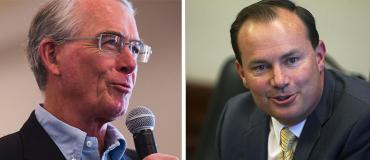
Even though he has left a key committee for higher education issues, U.S. Rep. Francis Rooney, R-Fla., has teamed up with U.S. Sen. Mike Lee, R-Utah, on a bill trying to hold tuition down by reforming federal student loans.
Rooney and Lee brought out the Higher Education Reform and Opportunity (HERO) Act which they showcased on Wednesday.
Under the proposal, federal loans for undergraduate education would be capped at $30,000 with a 15-year repayment period while the cap would be raised to $40,000 with a 25-year repayment period for graduate school. The bill would have the federal government keep track on the time needed for student to graduate and monitor their debt and how they do in finding jobs. If the bill passes, universities would have to repay 10 percent of the student default amount minus the Federal unemployment rate.
“Student tuition inflated 439 percent between 1982 and 2007, in part due to the excess of federal loans available,” Rooney said on Wednesday. “A 2015 study done by the Federal Reserve Bank of New York showed that for each additional dollar the federal government allows students to borrow, colleges and universities increase their tuition by 60 cents. The HERO Act would streamline federal student loans and create caps to ensure that students can afford their education, and pay back their loans once they graduate.
“Further, education policy should be dictated at the local and state levels, and not by an out of touch bureaucracy in Washington. Many students have aptitudes and career goals that do not require and are not enhanced by college. Perhaps this is why only about one-half of college students today manage to graduate within six years. Higher education should respond to the needs of our economy and today’s job market. This legislation allows states to accredit innovative non-traditional programs like online courses, apprenticeships, or vocational schools to better prepare today’s students for the modern workforce,” Rooney added.
Rooney's bill was sent to the U.S. House Education and Labor Committee on Tuesday. Last week, Rooney gave up his spot on that committee to serve on the U.S. House Science, Space and Technology Committee.


